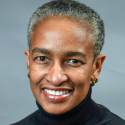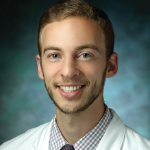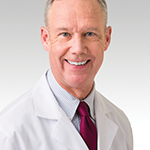
docstockmedia / shutterstock.com
Many, if not all, rheumatologists seek to grow as clinicians so they can provide consistently exceptional care to patients and serve as role models for colleagues and trainees. In this series, Lessons from a Master Clinician, we compile insights from clinicians who have achieved a level of distinction in the field of rheumatology.
Gail Kerr, MD, is chief of the Division of Rheumatology at the Washington, D.C., Veterans Affairs (VA) Medical Center and Howard University Hospital, and professor of medicine at Georgetown University and the Uniformed Services University of the Health Sciences. A highly regarded and internationally recognized physician-researcher, Dr. Kerr’s scholarship has included evaluation of therapeutic modalities for gout, osteoarthritis, ankylosing spondylitis, psoriatic arthritis, rheumatoid arthritis and systemic lupus erythematosus; as well as optimal management of rheumatic diseases in diverse populations. Dr. Kerr is the recipient of multiple awards for her research excellence, exceptional contributions to graduate medical education and service. She is a fellow of the American College of Physicians, the Royal College of Physicians and the ACR.
TR: In your opinion, what makes for a master clinician?
Dr. Kerr: I am from the old school and from a different time and structured way of learning medicine. I grew up in the British system, which was intensely clinical. The most important part of the clinician’s job was to take an exceptionally good and thorough history. By the end of the history, if you were not 90% sure of the diagnosis, then you had not done it well. The physical exam was used to confirm the clinical diagnosis. These tenets form the foundation for the practice of excellent clinical medicine. But they have been challenged by recent advances in medicine: a plethora of laboratory assays and other data can be collected and, when validated, can support the accuracy of a diagnosis—but at substantial cost to the patient and the healthcare system.
This change has led to a rise in the cost of medicine. I foresee a time when we will be limited in what we can order and the costs we can incur for patients. The clinician has traditionally been the link between the patient’s complaint and finding the right test to discover what condition he or she has, and the master clinicians are those physicians who can still serve this role.
TR: Who were some of your clinician role models, and what qualities did you admire in these individuals?

Dr. Kerr
Dr. Kerr: Thinking back to medical school at the University of the West Indies, I must give all of the accolades in the world to my medical school faculty and teachers. They were all extremely skilled clinicians, with a wide breadth of knowledge; even the musculoskeletal exam of the knee was first taught to me by a nephrologist. I was trained by cardiologists to detect an atrial septal defect just from the physical exam and clinical history. I was given the foundation of looking, listening, feeling and touching. Sir George Alleyne, MD, FRCP, FACP (Hon.), DSc (Hon.), was one specific role model of mine in medical school.
At the VA, we have excellent clinicians with regards to soft tissue rheumatism, and we do a lot of touching and feeling when it comes to the joints and in conditions such as rheumatoid arthritis. David Nashel, MD, at the VA, is someone I greatly admire.
TR: What are some habits a fellow in training or junior rheumatologist can incorporate into their daily practice to build on their skills as a clinician?
Dr. Kerr: I teach young trainees to always disrobe the patient and take time to examine the patient completely.
I push them more and more to place themselves in the life of a patient for a day. We know what treatments to use, but when the patient returns and hasn’t improved, we must ask, ‘Why is it so?’ We must see if they did not have the money to pay for their medication or could not come to clinic because they could not afford bus fare.
When you are young, you have often not experienced a medical disease, and it is important to understand how the patient feels. Sometimes an extra minute spent understanding the patient’s point of view means so much.
TR: What are the specific areas of triumph and challenges faced by women and minority physicians seeking to become leading clinicians in the field of rheumatology, and in medicine in general?
Dr. Kerr: My personality is to make sure we are respected even on rounding. Often, with a female attending rounding with a male fellow, the staff reflexively looks at the male fellow. This is doubly true for me due to ethnicity, as well. You know that you know your subject matter, and eventually, the eyes will turn to you when you demonstrate your knowledge and skill.
In the Caribbean, many women are in leadership roles. Most of the university graduates are women, and although, subconsciously, there may still exist certain gender-specific ideas, the social structure is different. We must aspire to maintain our role as providers of care and also work to improve the system around us.
 Jason Liebowitz, MD, recently completed a fellowship in rheumatology at Johns Hopkins University, Baltimore, where he also earned his MD. He completed his residency at Johns Hopkins Bayview.
Jason Liebowitz, MD, recently completed a fellowship in rheumatology at Johns Hopkins University, Baltimore, where he also earned his MD. He completed his residency at Johns Hopkins Bayview.


